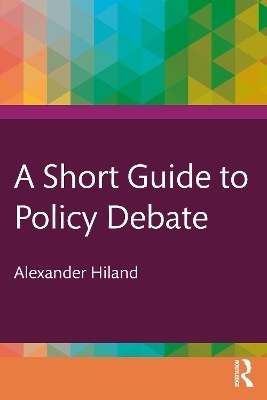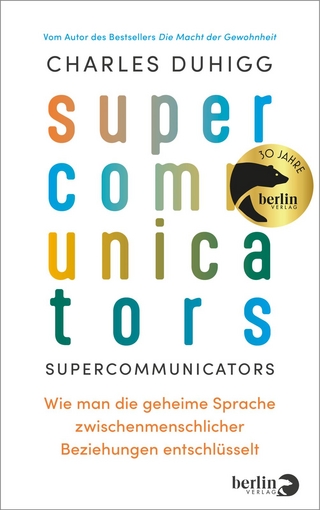
A Short Guide to Policy Debate
Seiten
2024
Routledge (Verlag)
978-1-032-61312-3 (ISBN)
Routledge (Verlag)
978-1-032-61312-3 (ISBN)
This book offers step-by-step guidance on how to prepare and analyze topics, cases, and rebuttals and outlines the norms and rules of contemporary interscholastic competition in the United States. This book will be of interest to students and instructors in the fields of debate, persuasion, public speaking, and argumentation.
This short, practical guide to policy debate helps coaches, instructors, and students prepare for competitions at the collegiate level.
This book offers step-by-step guidance on how to prepare and analyze topics, cases, and rebuttals and outlines the norms and rules of contemporary interscholastic competition in the United States. It provides a structured and systematic approach to preparation to improve the educational and competitive elements of the debate experience. Written in an accessible style, this book explains how to conduct research and compete online, the strategies behind constructing a case, and includes guidance on how to determine judge tendencies. Chapters include glossaries, sample cases and speeches, and practical activities to allow readers to develop their argumentation and cross-examination skills.
Providing a streamlined, student-focused approach to policy debate, this book will be of interest to students and instructors in the fields of debate, persuasion, public speaking, and argumentation.
This short, practical guide to policy debate helps coaches, instructors, and students prepare for competitions at the collegiate level.
This book offers step-by-step guidance on how to prepare and analyze topics, cases, and rebuttals and outlines the norms and rules of contemporary interscholastic competition in the United States. It provides a structured and systematic approach to preparation to improve the educational and competitive elements of the debate experience. Written in an accessible style, this book explains how to conduct research and compete online, the strategies behind constructing a case, and includes guidance on how to determine judge tendencies. Chapters include glossaries, sample cases and speeches, and practical activities to allow readers to develop their argumentation and cross-examination skills.
Providing a streamlined, student-focused approach to policy debate, this book will be of interest to students and instructors in the fields of debate, persuasion, public speaking, and argumentation.
Alexander Hiland is a Senior Lecturer in Communication & Media at Rensselaer Polytechnic Institute, USA.
Preface Introduction 1. Analyzing Debate Topics 2. Performing Debate Research 3. Affirmative Cases 4. Negative Cases 5. Cross-Examination 6. Answering Cases 7. Rebuttal Speeches 8. Judging Policy Debate 9. Practice and Tournament Preparation. Conclusion. Bibliography. Appendix A Sample Affirmative Case. Appendix B Sample Negative Case. Index
| Erscheinungsdatum | 02.11.2024 |
|---|---|
| Zusatzinfo | 1 Tables, black and white |
| Verlagsort | London |
| Sprache | englisch |
| Maße | 152 x 229 mm |
| Gewicht | 360 g |
| Themenwelt | Sachbuch/Ratgeber ► Beruf / Finanzen / Recht / Wirtschaft ► Briefe / Präsentation / Rhetorik |
| Geisteswissenschaften ► Geschichte | |
| Sozialwissenschaften ► Kommunikation / Medien ► Kommunikationswissenschaft | |
| Sozialwissenschaften ► Kommunikation / Medien ► Medienwissenschaft | |
| ISBN-10 | 1-032-61312-2 / 1032613122 |
| ISBN-13 | 978-1-032-61312-3 / 9781032613123 |
| Zustand | Neuware |
| Informationen gemäß Produktsicherheitsverordnung (GPSR) | |
| Haben Sie eine Frage zum Produkt? |
Mehr entdecken
aus dem Bereich
aus dem Bereich
Wie man die geheime Sprache zwischenmenschlicher Beziehungen …
Buch | Hardcover (2024)
Berlin Verlag
CHF 36,40
der unverzichtbare LEGO® SERIOUS PLAY® Praxis-Guide für Workshops, …
Buch | Hardcover (2023)
Hanser (Verlag)
CHF 55,95
Die Rede des Häuptling Seattle an den Präsidenten der Vereinigten …
Buch | Hardcover (2024)
Patmos Verlag
CHF 14,90


